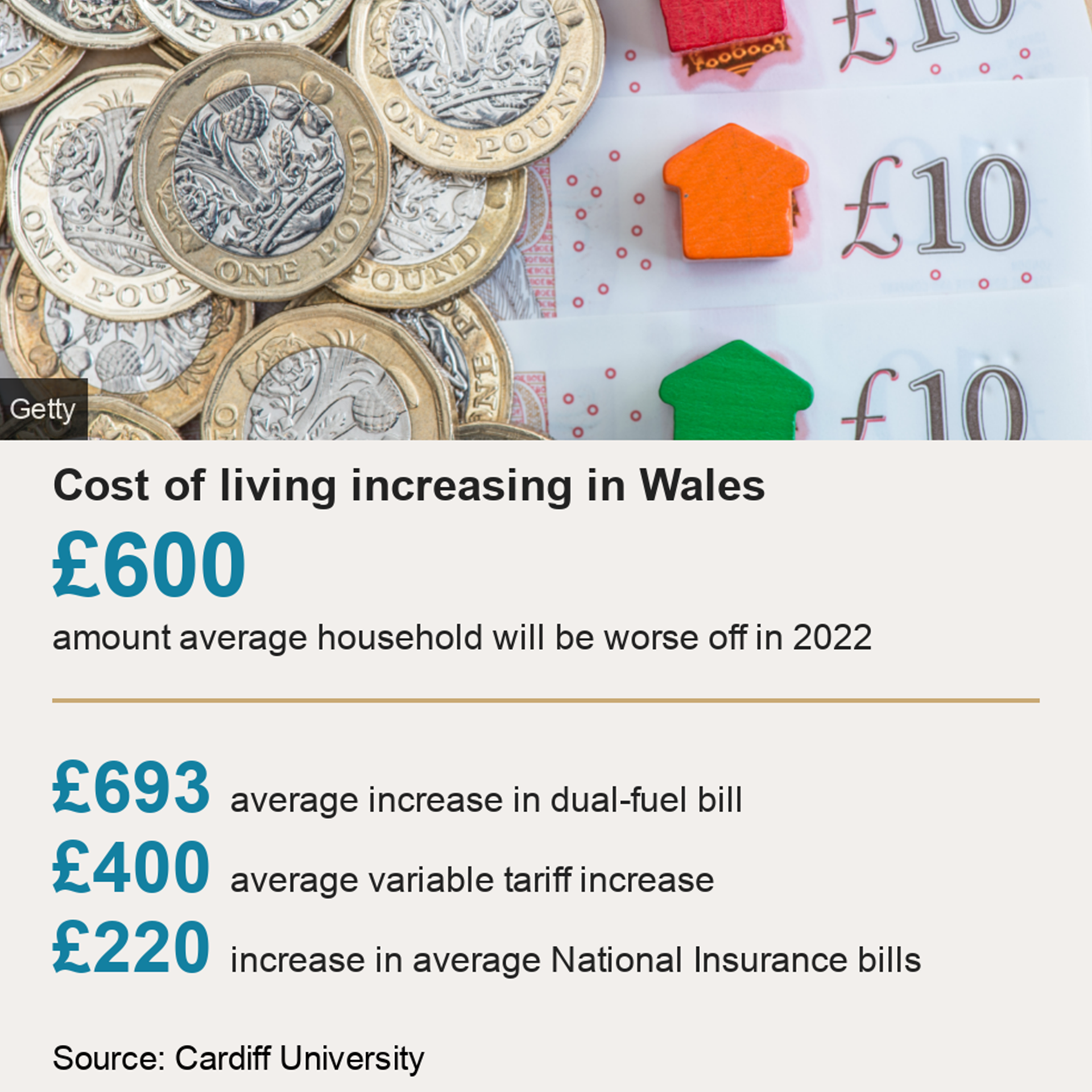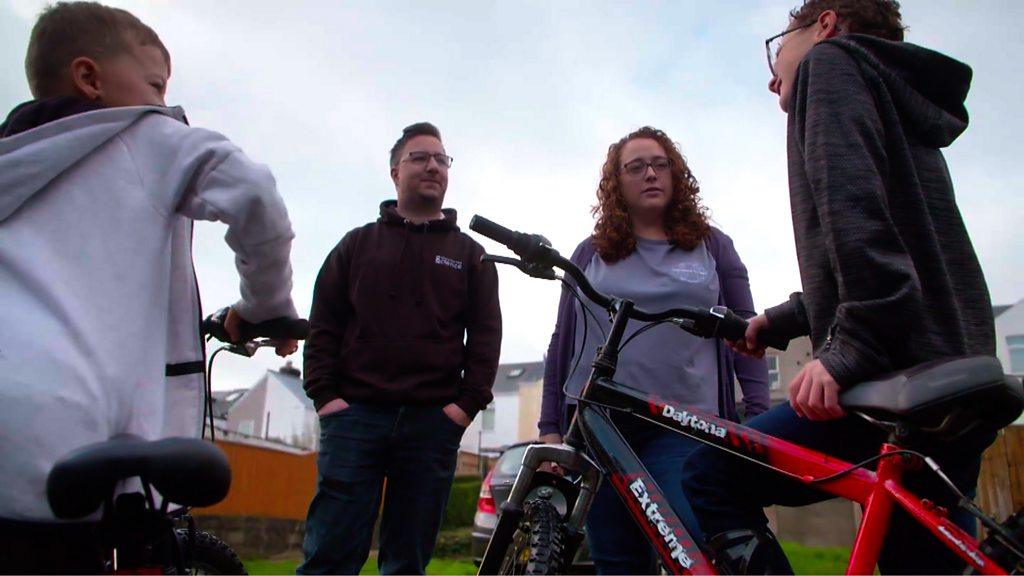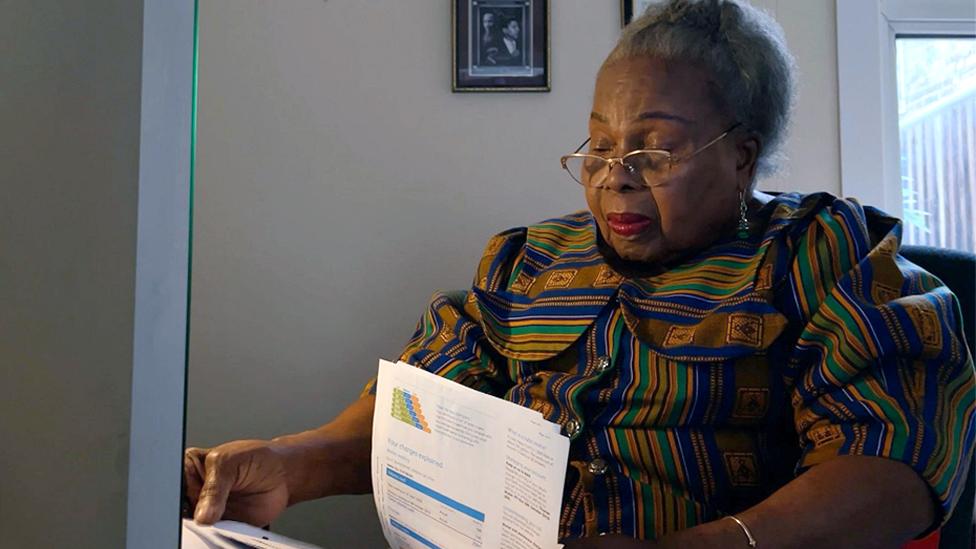Cost of living: Households face being hundreds of pounds worse off
- Published
- comments

Rising prices for everyday essentials and energy price hikes could put even more pressure on incomes
The average Welsh household will be at least £600 worse off this year, finance experts have warned.
Rising prices for everyday essentials and further hikes in energy bills could put even more pressure on incomes.
A report from Cardiff University says people should be braced for a squeeze on living standards "on a scale not seen in the UK for decades".
The Welsh government said it was doing "all it can... to help Welsh families".
Cardiff University's Wales Governance Centre weighed up the impact of rising costs and government help.
The average dual-fuel energy bill will rise £693 a year from April, equivalent to about 12% of the poorest households' disposable income.
But the report warns of "considerable uncertainty" in the months ahead.
Further energy cost increases are possible later in the year when Ofgem updates the price cap again in August.
Because it has so many old and poorly insulated homes, Wales could be hit particularly hard by sharp rises in energy costs following Russia's invasion of Ukraine, the report says.
Inflation is on course to hit its highest level in decades - and is rising quicker than the growth in benefits.
The National Insurance increase, due to start in April, will leave the average Welsh household worse off by £220 a year, the report says.


Two years after the pandemic struck, governments in Wales and Westminster are under pressure to shield people from soaring costs.
In February, the Welsh government announced funding worth £340m to help people with the cost of living.
UK government schemes include a £200 discount on electricity bills in the autumn, which will be repaid by customers in instalments over five years.
But the report says even after all the cost-of-living assistance, the average Welsh household on a variable tariff will still be £400 worse off in April due to energy price rises - and £600 worse off when tax rises are included.
The poorest 10% face the biggest hit, relative to their disposable incomes.

The Cardiff University report warns people to brace to be squeezed on a scale not seen for decades
The report says Welsh government funding is more generous than in other parts of the UK and "more targeted towards lower-income households".
Report author Cian Siôn said: "Despite the interventions made by the UK and Welsh governments, a combination of inflationary pressures, tax rises and trailing income growth mean householders in the UK face the biggest squeeze in living standards in decades."
The UK government said it had set out a £21bn support package that included a £150 council tax rebate from April and a £200 energy bill discount in October.
It said a cap on energy prices was in place to protect people from volatile gas prices.
A spokesman said: "We will set out an energy supply strategy which will supercharge our renewable energy and nuclear capacity to bolster our domestic supply and help drive down energy costs."
The Welsh government said it was doing all it could "with the resource and powers available" to respond to "an unprecedented cost-of-living crisis".
A spokesperson added that the Household Support Fund offers a "suite of measures," including a £200 one-time payment to help people struggling with winter fuel costs, and a £150 cost-of-living payment to households in Council tax bands D-E.
Welsh ministers called on the UK government to "provide people with more support" in its spring budget statement.

WOMEN OF WALES: Showcasing amazing Welsh female talent and stories
PEOPLE THOUGHT OF AS BITS OF AN ALGORITHM: Life and death in the warehouse

Related topics
- Published29 January 2022

- Published26 October 2021

- Published10 January 2022
